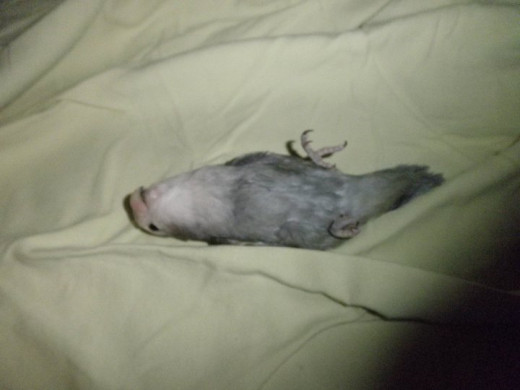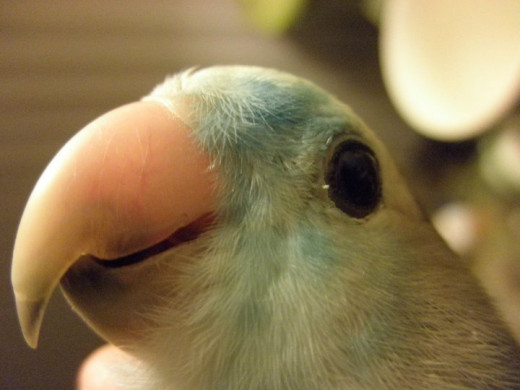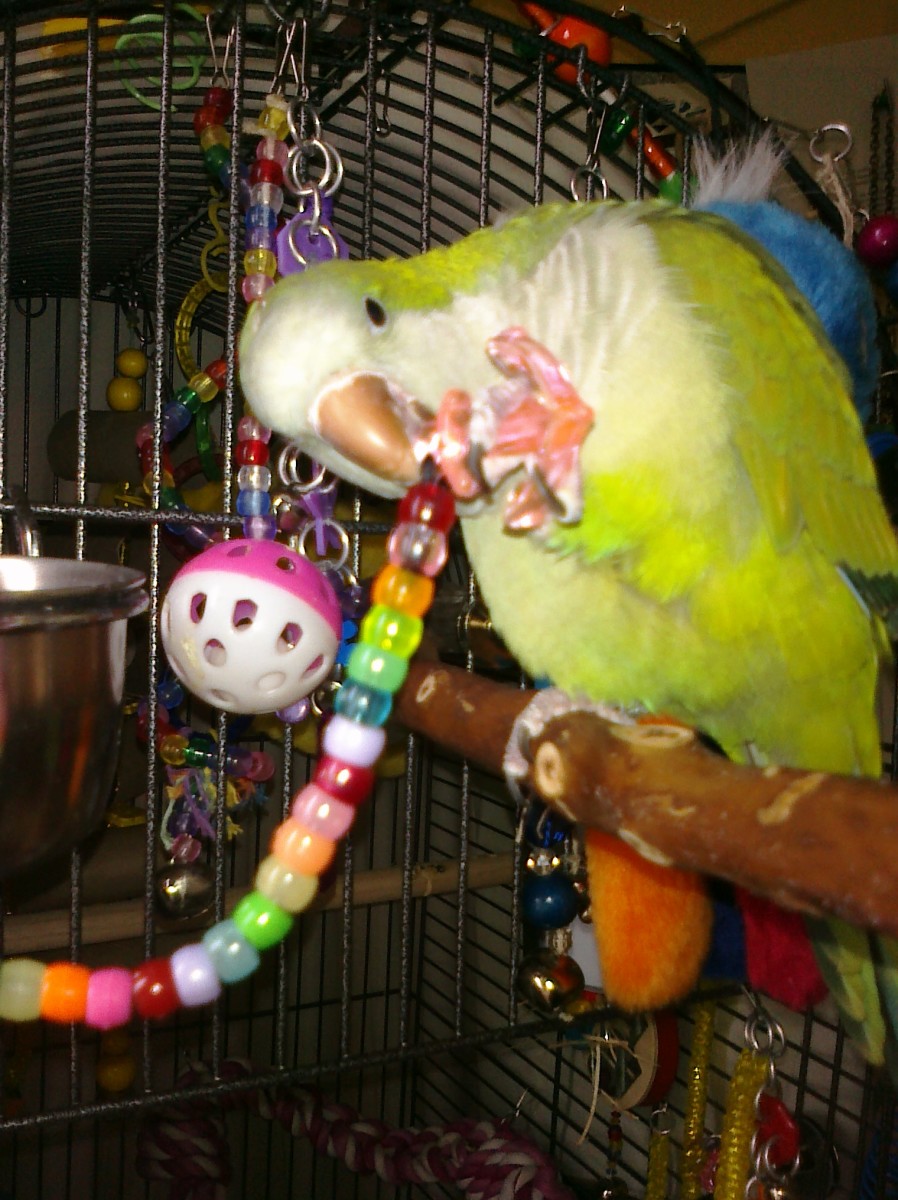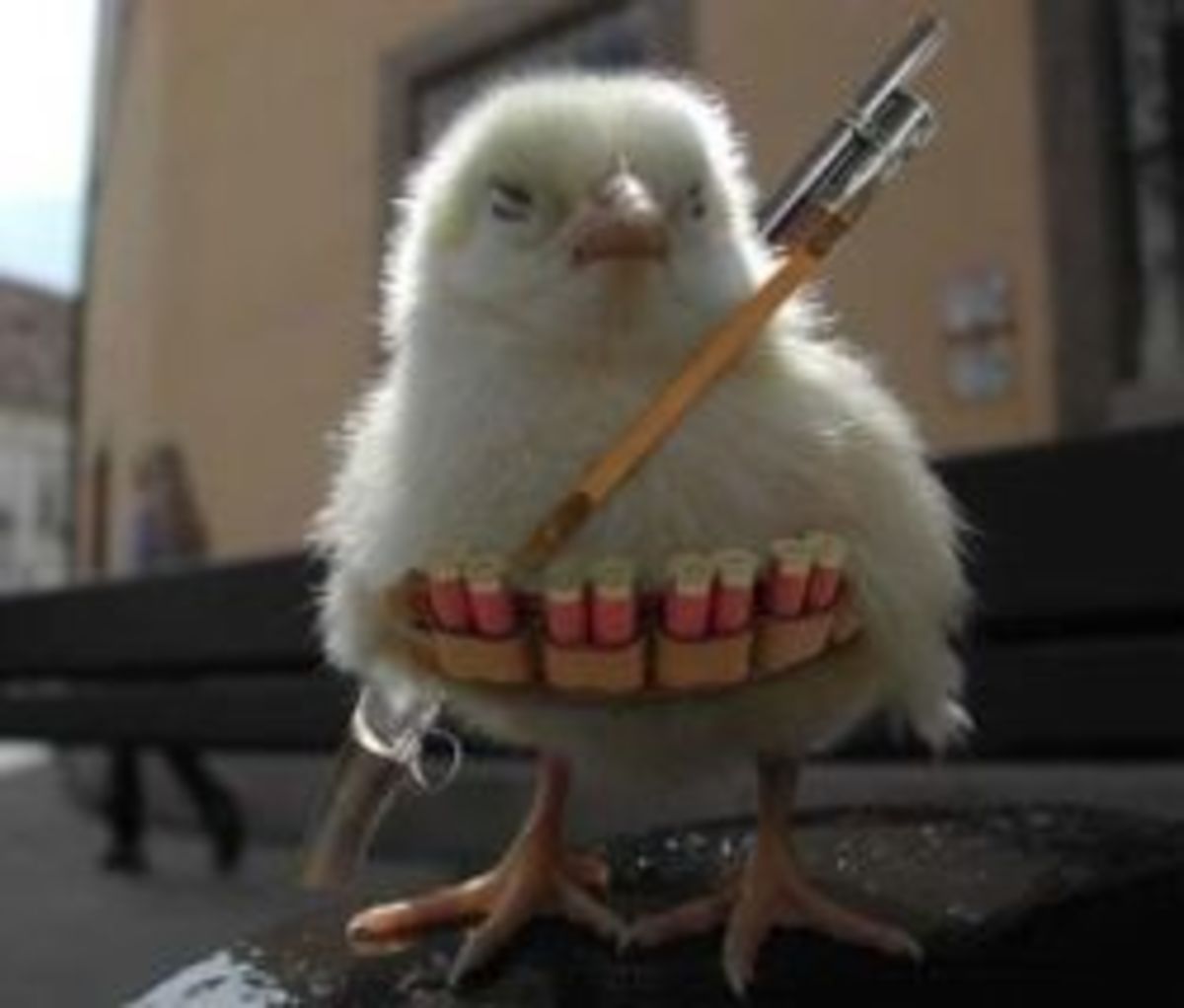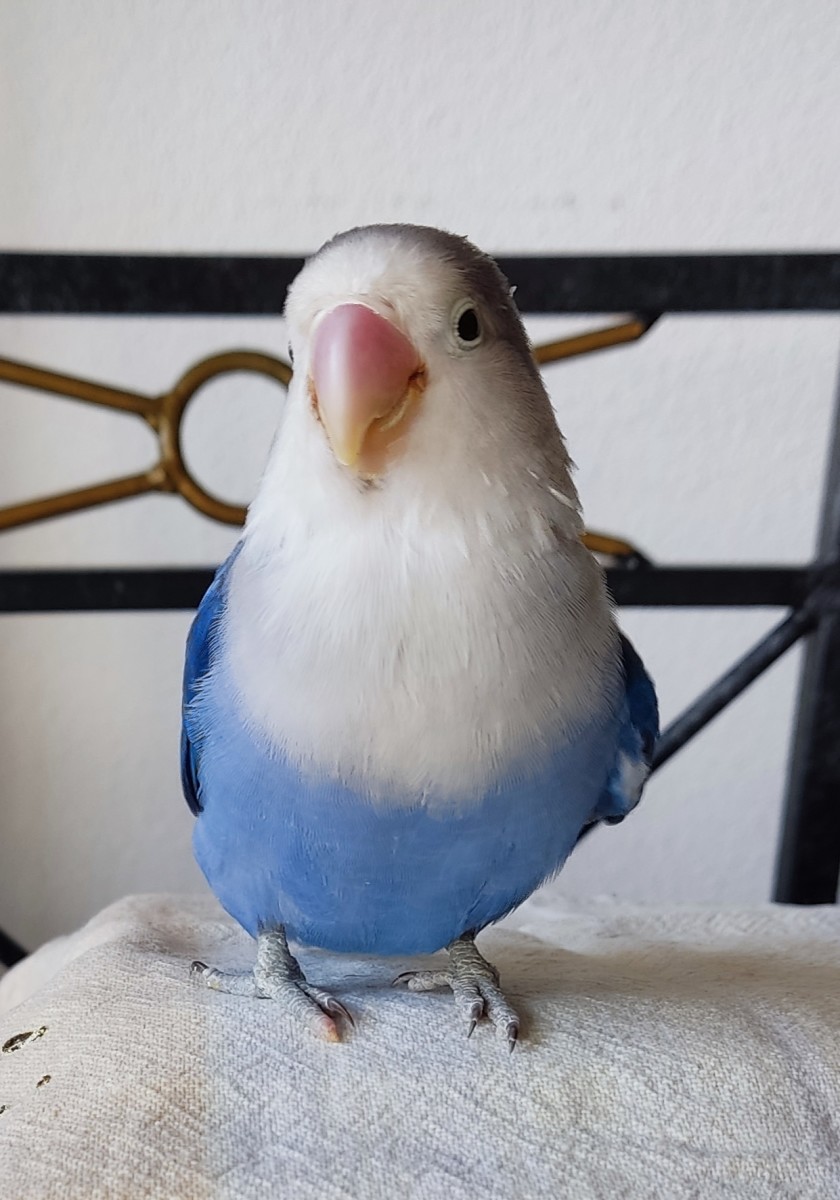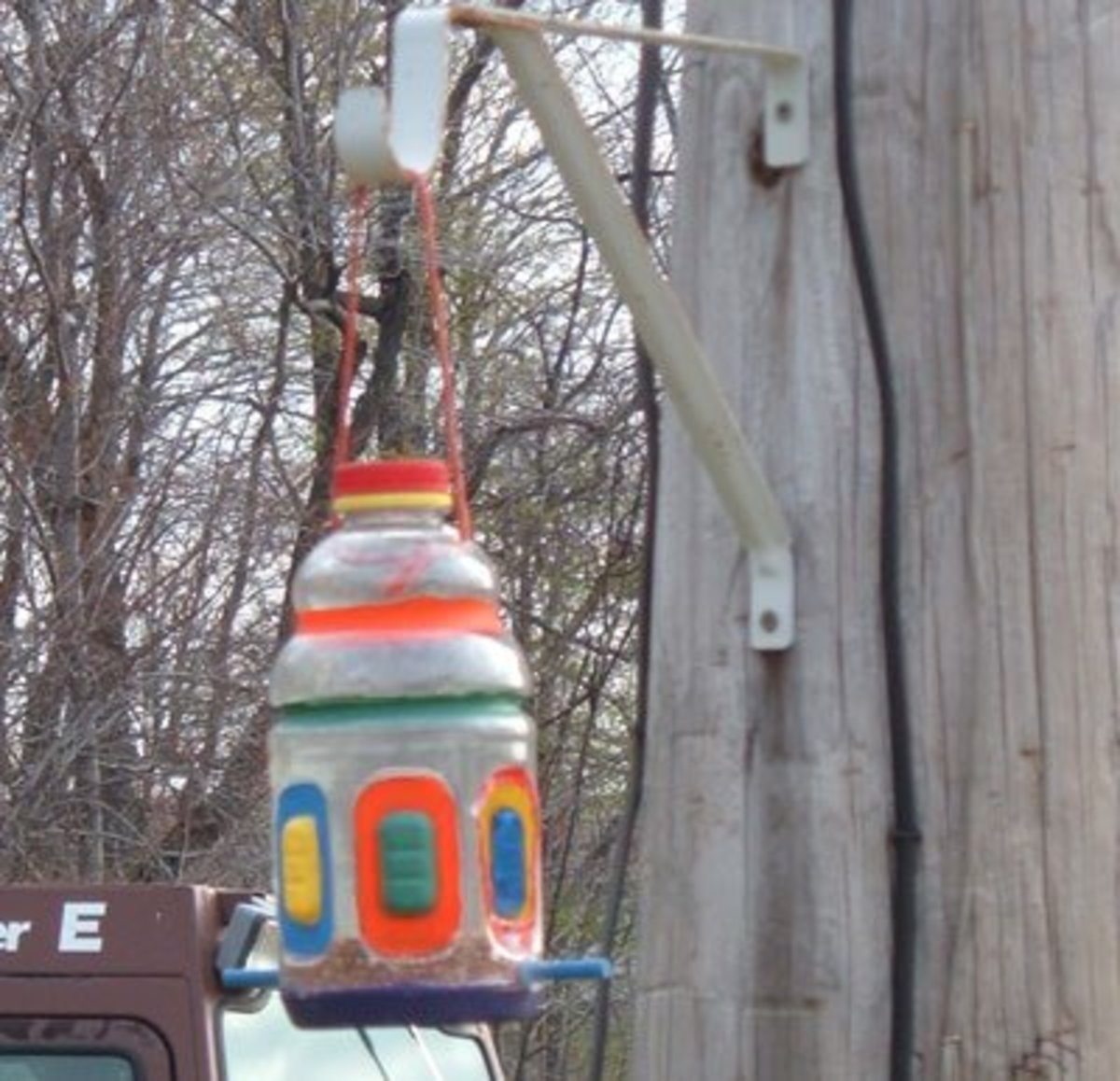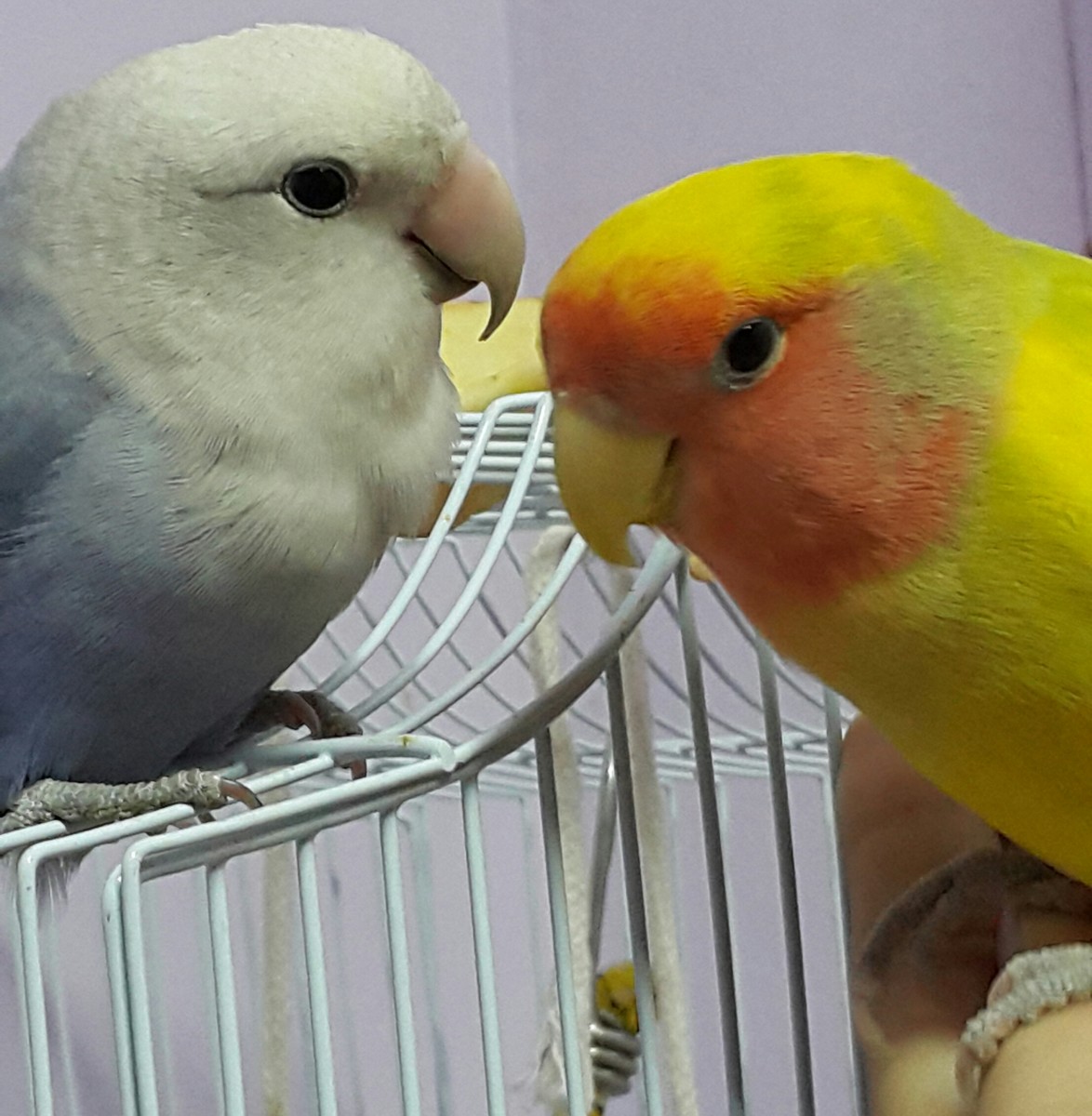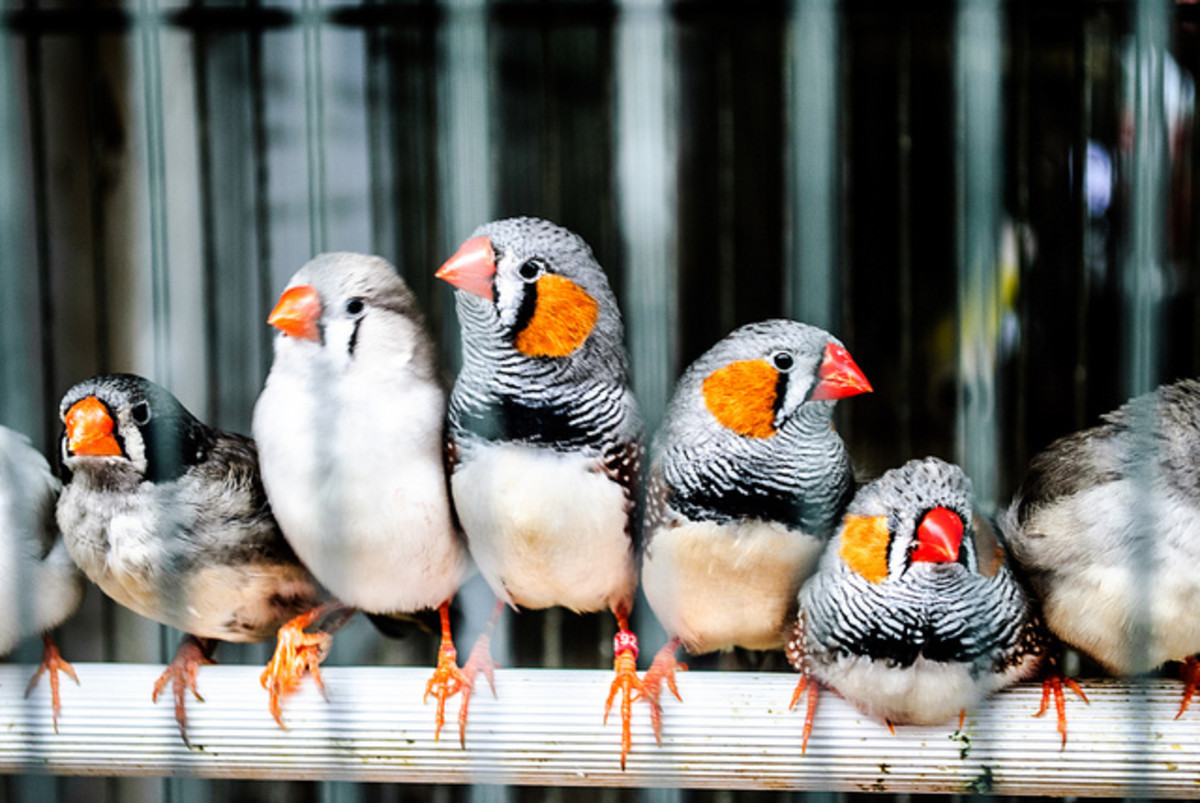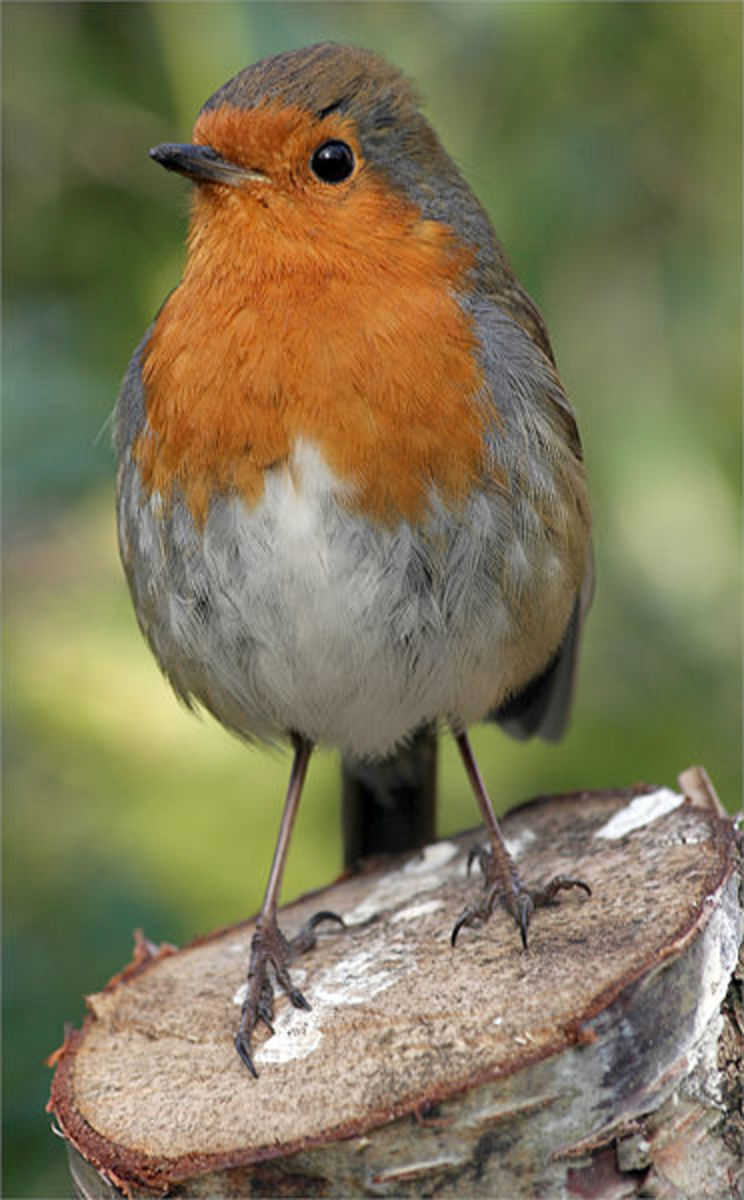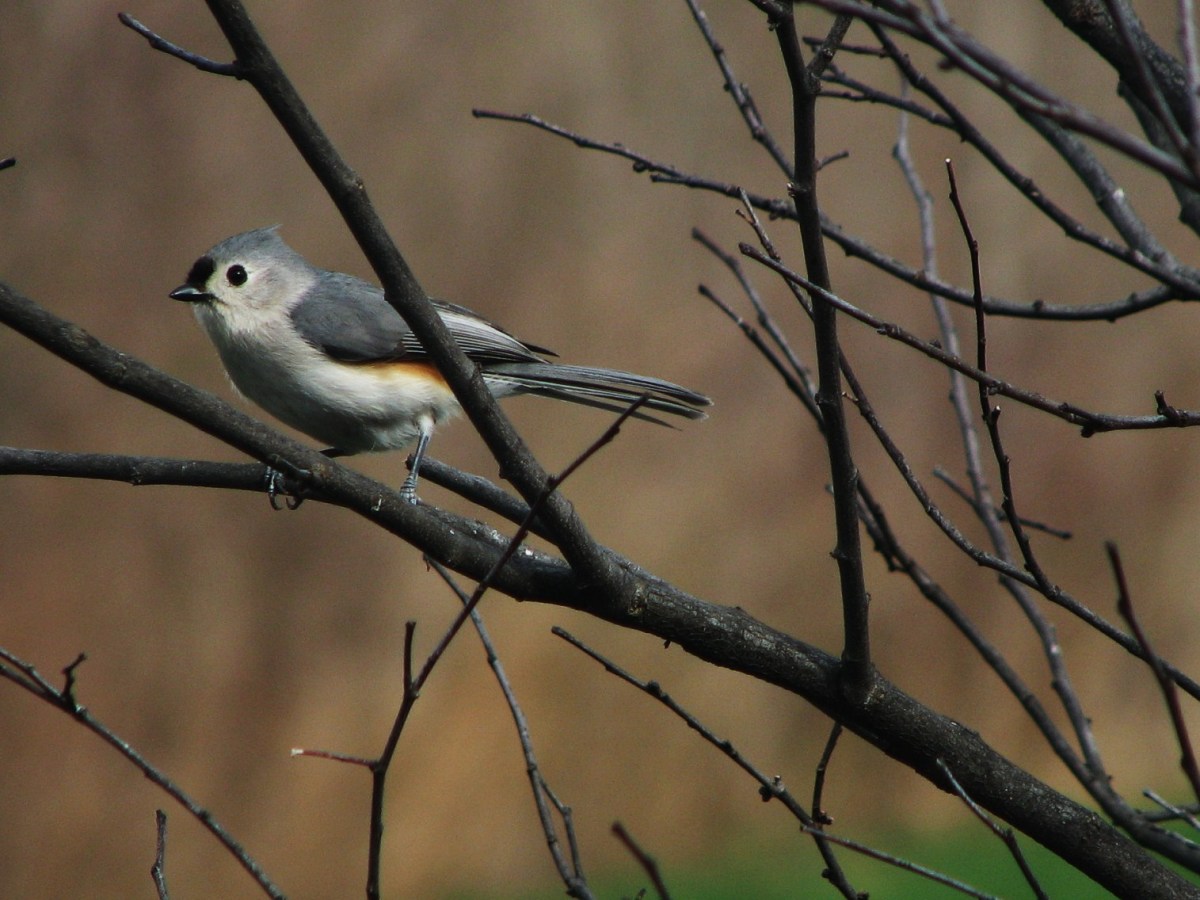My Life, With Birds (Volume 3)
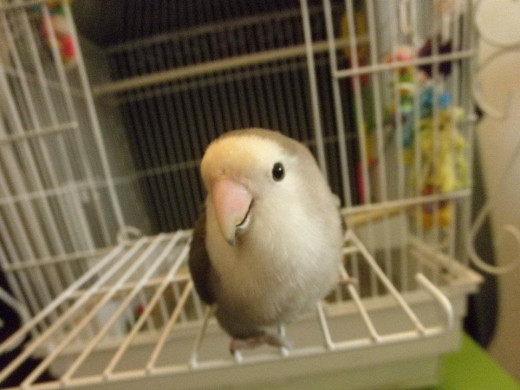
Dorienne Grey
When you think of lovebirds, you think of the brightly colored, african, small parrot-family, always in pairs, always sweet little birds that look so cute, have the peach faces.
Unless you know birds, lovebirds in particular, you probably don't know they can come in just plain grey. The picture at the right is a real lovebird. She happens to be my lovebird, and she has two recessive color traits that make her look almost grey at first glance.
And that is where she got her name.
Originally, we didn't know if she was going to be a male or female, so we named 'him' Dorian Grey after the book, but as soon as she went through lovebird puberty and I frantically called my local petstore asking why my bird was going insane, they told me "oh, it's just a female, she'll calm down once she stops being nesty. May want to invest in some good strong potholders until then."
A little creative regendering of the name and she is now Dorienne.
But to us, she's just Dori.
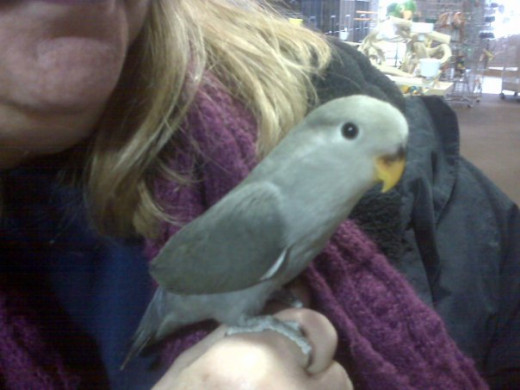
A New Addition
I was originally looking for a parrotlette. Small as well. I can't remember exactly why, but I knew I wanted another bird, something smaller than my other two, that I could train to do tricks and all sorts of fun things.
I called around to a few local bird-specific stores in the neighborhood and 'across the bridge', looking for someone who might have a freshly hatched clutch. One of my favorite bird stores in town said that no, they didn't have parrotlettes, but they did have lovebirds, and there was one olive one left.
I already trusted that store, and the eggs had just recently hatched, they had their first set of baby feathers in but they weren't even weaned, and they were being hand raised. Olive sounded good - olive is a shade of green I particularly like.
When we got there, I saw all the colorful ones, I wondered which was considered the 'olive' lovebird. I didn't even see the little grey one in the corner, happily eating on her own. So I asked which one was the olive, I was interested in her. I think the look on my face said it all - "that's a lovebird?" - when she pulled out the little grey one from the enclosure, and put her in my hands.
And that was all it took.
She was the last one hatched but she was catching up quickly, and she was fully weaned at the same time as the first baby to hatch.
So a couple weeks after I fell in love with this dull, grey, shy little bird, we brought her home.


Growing Pains
The entire first year, she was excellent. The only problem we had with her was the amount of energy she had - she would run around the entire apartment, jump on the other bird's cages, annoy them, run around some more, until finally she'd come up, burrow under one of our shirts, and fall asleep, out cold.
I miss those days.
Then, once every couple of months, she'd start turning into the tiny terror. Anything paper, you couldn't leave out. But then she'd go back to being sweet and loving for a few months, snuggling, chewing on ears gently, giving kisses.
And then, about seven, eight months ago, I don't know what happened. We had the birds in 'birdsitting' at the same place we'd bought her at, but new people own it, and since we got her back, she's been cage-aggressive, will bite anything that looks like a hand, and is aggressive.
We've been working with her, but I truly miss that little bird I brought home, she's not back yet. I speculate someone (maybe a little kid?) stuck their hand in the cage and freaked her out. She won't tolerate fingers now if she's within sight of her cage. Oddly enough, if we put a heavy glove on and take her to another room, and give her time to chill out, she'll be much nicer and let us do whatever we want to her, but she'll still have a little anxiety about being away from her cage, and keep flying to the door to try to get back to the cage.
Lately, she's taken to pretending to chew on wires on my desk (computer wires) because she thinks it's a game to have me shoo her away.
So I gave her a stuffed penguin I got at Dave & Buster's, and she absolutely loves him. Anytime I lift the penguin, she drops whatever she's doing and goes after him. She's already got holes in his beak and feet, and when he falls off her cage door, she hangs upside-down like she thinks she can reach him.
Dori thinks she's a big bird. Even when she was being nice to humans, she bossed the other birds around (even the nanday, which, of course, was an issue, because one bite from Rose and Dori wouldn't be playing dead - luckily Rose has always been good with her, the worst they've ever done is tap beaks).
I read somewhere that Lovebirds are frustrated creatures because they have big-parrot brains in small-parrot bodies.
As I'm typing this, she's hanging upside-down off her cage door, looking between me and Pengi (the penguin), which means "mom, I dropped it, help!"
Yes. I picked it up for her. She has me trained. Lovebirds are good at that - training their owners. She has her grandmother (my mom) wrapped around her little toe, though, so being a little bit trained doesn't bother me compared to that.
But she's coming around a little. Every so often, she'll jump on our arms while one of us is at the desk, and hop up onto our shoulders for a brief snuggle, on her terms, but if we reach for her with a hand, it's war. Hopefully our methods will have a breakthrough soon, but so far...baby steps. I still love her and I'll still try.
The Skinny on Lovies
Personality: Bold. Of course every bird is different, but this seems to be a well-known trait of lovebirds. Lovebirds have a reputation of being both very sweet and affectionate, and of being bullies. Since they are so small with such large beaks, they need to make up for stature with attitude, and Dori definitely does that. They are one of the most intelligent birds out there (which sometimes works against them), but do not talk - they can still mimick sounds and other birdcalls.
They are high energy as well, so make sure they have a lot to do throughout the day or they can get destructive. I keep a stuffed animal by Dori's cage so that when she's showing signs of boredom I "attack" her with it (wave it in front of her and let her do the attacking). The animal is now known as "her Pengi" or penguin.
Bite: Nearly comparable to that of a Nanday Conure - Lovies have those big beaks for their bodies, and they are powerful. And trust me, they go for blood if they bite you.
Mischief Quotient: Extreme. Females, especially, will have hormonal nesting periods where they HAVE to chew like their lives depend on it, and you'd better hope you didn't put the cage too close to the bookshelf because as soon as they figure out those can be chewed, they're gone.
Trainability: moderate. If you make it fun, they'll learn it, but they're too smart to just pick up what they don't want to do.
Volume Level: Moderate to Loud. They like talking to the native birds outside, will mock any other birds you have inside (Orsino will do his call for me and then she'll start doing it, and he just glares over at her cage at her), and will randomly go off on every call they know when they feel like it.

